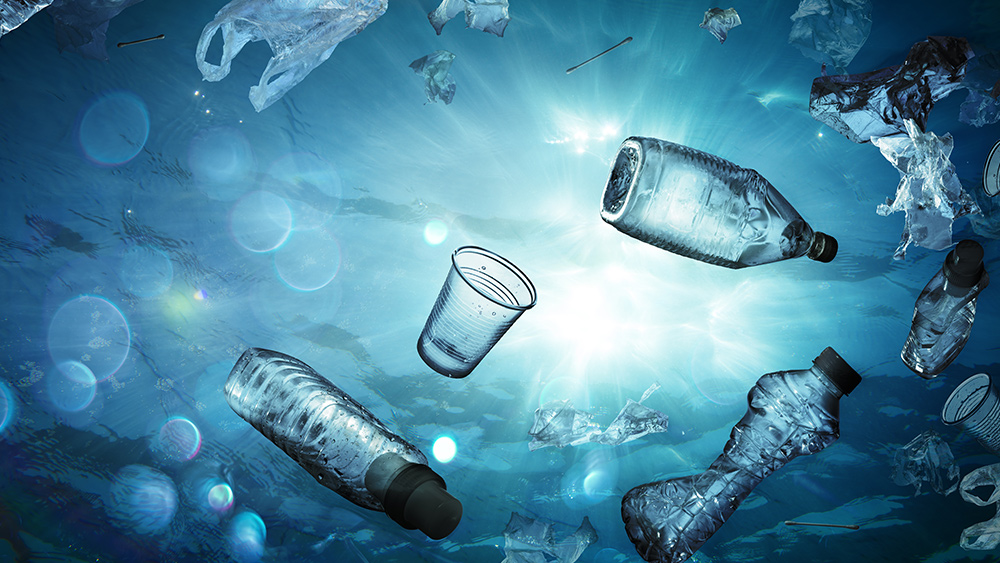Former CIA operations officer warns: EVs and the climate agenda threaten NATIONAL SECURITY
05/02/2024 / By Ava Grace

According to a former Central Intelligence Agency (CIA) operations officer, electric vehicles (EVs) and the climate agenda undermine America’s national security.
Bryan Dean Wright, the host of “The Wright Report” podcast and a former CIA operations officer, disclosed this to Fox News Digital. According to him, EVs pose environmental problems, national security issues and driver safety concerns. These setbacks, he continued, make EVs a less than desirable alternative to gas-powered cars they are ostensibly to replace.
Wright added that one of the most important things to consider when buying an EV is whether it is actually “green.” He believes that these supposedly “green” EVs are actually quite “dirty” – starting with their batteries.
The former CIA staffer explained that thousands of pounds of minerals – including cobalt, lithium and nickel – from all around the world have to first be extracted. Seventy percent of the world’s cobalt comes from the Democratic Republic of the Congo (DRC), and a third of that come from miners who are “mostly kids,” he said. (Related: America IGNORING human rights, child labor abuses in the DRC to secure supplies of METALS for EV batteries.)
“That is a horrific thing, imagining these child miners pulling this stuff out of the ground to make our green cars go – but that is true. Also, we know about the 19 cobalt mines in the [DRC]. Fifteen of them are controlled by the Chinese government or a Chinese entity.”
Extracting metals for EV battery production damages the environment and depletes resources
Meanwhile, Wright continued that while lithium mostly comes from Australia, a large amount also comes from the Atacama Desert in South America – located in what is known as the “lithium triangle.” Lithium mining is problematic for the region because while the land is extraordinarily dry, the extraction process requires large amount of water. According to the host of “The Wright Report,” 500,000 gallons of water is needed to produce a single ton of lithium.
We are building the infrastructure of human freedom and empowering people to be informed, healthy and aware. Explore our decentralized, peer-to-peer, uncensorable Brighteon.io free speech platform here. Learn about our free, downloadable generative AI tools at Brighteon.AI. Every purchase at HealthRangerStore.com helps fund our efforts to build and share more tools for empowering humanity with knowledge and abundance.
Because water is such a coveted resource in the region, Wright said lithium mining has caused tension between governments, mining companies and locals – especially indigenous peoples – about how the water should be used.
“We are removing the one critical resource by a lot of these indigenous folks down there, so we can have our green and clean car,” he said.
Nickel, another metal vital to EV battery production, primarily comes from Indonesia. There are two approaches to extracting the metal – an energy-intensive process that requires coal-fired furnaces and through chemical extraction using sulfuric acid. But regardless of how it’s extracted, the practice harms Indonesia’s environment and its people.
The problems don’t finish when the nickel is extracted, however. It needs to be disposed either in tailing ponds, or dried and stacked – with both these disposal methods posing environmental problems.
The extraction process for the three metals alone entails exploitation of children for labor and environmental damage. But the refining process requires that minerals be sent to China, with Beijing responsible for refining 80 percent of the batteries’ raw materials.
“But that’s just the beginning. We haven’t even gotten into the car to start to drive,” Wright said. “Imagining we get into that car, we have a few different concerns.”
“We’ve got a national security concern. That car is basically a computer on wheels. So as that thing drives, it’s going to both get things done.”
As of writing, both lithium-ion batteries – those typically used in EVs and as mega-batteries for storing energy from renewables – and standard lithium batteries are hard to recycle. One reason is that the most widely used methods of recycling more traditional batteries such as lead-acid versions don’t work with lithium ones. Lithium batteries are typically larger, heavier, much more complex and even dangerous if taken apart wrong.
“EVs are often touted as the green alternative to gas-powered vehicles, but … if people knew the truth about [them], they would think twice before purchasing one,” concluded Kendall Tietz of Fox News.
Watch this video that explains why EVs are a bad idea.
This video is from KevinJJohnston channel on Brighteon.com.
More related stories:
Widow SUES Tesla over “dangerous” electric vehicle that KILLED HER HUSBAND.
Tesla’s largest electric vehicle charging station in America IS POWERED BY DIESEL.
7 Reasons why the electric vehicle is not ready for mass consumption.
EV COLLAPSE: Electric vehicle manufacturer Lordstown Motors files for bankruptcy.
Sources include:
Submit a correction >>
Tagged Under:
Bryan Dean Wright, China, clean water, climate agenda, climate change, cobalt, Ecology, electric cars, electric vehicles, environ, environmental damage, EV batteries, flying cars, green deal, Green New Deal, green tyranny, lithium, metals, national security, nickel, risk, robocars, transportation
This article may contain statements that reflect the opinion of the author



















